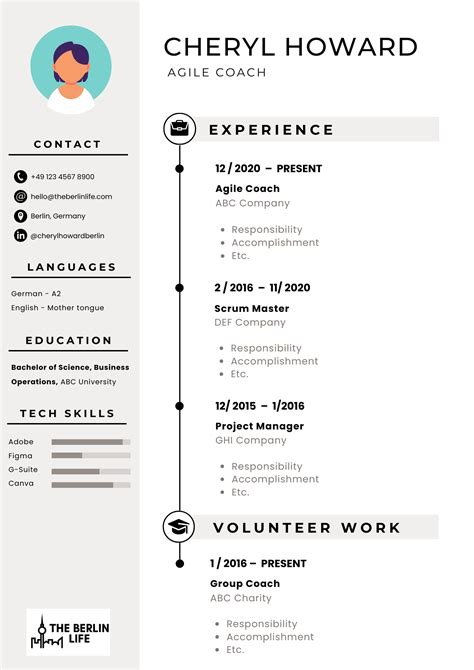Learn the key elements and formatting for a German resume, and how to customize it for the local job market. Helpful tips for job seekers.Are you considering applying for a job in Germany? If so, it’s important to understand the unique expectations and requirements of the German job market, especially when it comes to your resume. Crafting a resume that aligns with German standards can significantly impact your job prospects in the country. In this blog post, we will explore the essential elements of a German resume and provide valuable insights into formatting and customization. We will discuss the key components that should be included in your resume, as well as the specific format and style preferences that are favored by German employers. Whether you’re a recent graduate, an experienced professional, or an expat looking to make a career move to Germany, this guide will help you create a tailored and impactful resume that resonates with German employers. Join us as we delve into the intricacies of the German resume format and learn how to best showcase your qualifications for the German job market.
Understanding the German Resume Format
Understanding the German Resume Format
In Germany, the resume format follows a specific structure that is different from other countries. Understanding the German resume format is crucial for anyone looking to apply for a job in the German job market. The format usually includes personal information, educational background, work experience, language skills, and references. It is important to tailor your resume to the specific requirements of the job you are applying for.
When creating a German resume, it is essential to include key elements such as a professional photo, date and place of birth, marital status, and nationality. These details are considered standard in the German resume format and are expected by employers. Additionally, highlighting language skills, especially if you are proficient in German, can give you an edge in the job market.
Formatting your German resume in a clear and organized manner is essential for making a good impression on potential employers. Using a simple and professional font, and organizing your information in a chronological order can make your resume stand out. It is important to customize your resume to the standards of the German job market, as this can significantly impact your chances of being selected for an interview.
Key Elements to Include in Your German Resume
When creating a German resume, it’s important to include certain key elements that are specific to the German job market. One of the most important elements to include is your personal information, which should be placed at the top of the resume. This includes your full name, address, phone number, and email address. In addition, including a professional photo of yourself is common in German resumes.
Another essential element to include in your German resume is your educational background. This should be listed in reverse chronological order, starting with your most recent degree or certification. Be sure to include the name of the institution, the location, and the dates attended. It’s also beneficial to include any specialized training or certifications that are relevant to the position you are applying for.
Finally, it’s crucial to include your work experience in your German resume. This should also be listed in reverse chronological order, starting with your most recent position. Include the name of the company, the location, your job title, and the dates of employment. Additionally, provide a brief description of your responsibilities and any notable achievements or contributions. This will give potential employers a clear understanding of your professional experience.
Formatting Your German Resume
Formatting Your German Resume
When it comes to applying for jobs in Germany, it’s important to understand the proper format for a German resume. In Germany, the standard format for a resume is quite different from what you might be used to in other countries. It’s important to customize your resume to adhere to German standards in order to make a good impression on potential employers.
One key element to include in your German resume is a professional photo. In Germany, it’s common and expected to include a professional headshot at the top of your resume. This helps employers put a face to your name and creates a personal connection before they even meet you in person.
Another important aspect of formatting your German resume is to include detailed information about your education and work experience. German employers place a high value on qualifications and experience, so it’s important to include this information in a clear and organized manner. Additionally, it’s important to include any language skills you have, as this is highly valued in the German job market.
Customizing Your Resume for German Job Market
When it comes to customizing your resume for the German job market, there are several key elements to keep in mind. One of the most important aspects to consider is the German resume format. Unlike resumes in other countries, the German resume typically includes a professional photo, personal information such as date of birth and marital status, as well as a clear and concise summary of your education and work experience.
Another crucial element to include in your German resume is your language proficiency. While it’s important to highlight your fluency in German, it’s also beneficial to showcase any other languages you may speak, as Germany is a global hub for business and international companies. Additionally, be sure to tailor your resume to the specific job you’re applying for, emphasizing relevant skills and experience that align with the position’s requirements.
When formatting your resume for the German job market, it’s important to use a clean and professional layout. Avoid using flashy or colorful designs, and instead opt for a simple and structured format that is easy to read. Lastly, always double-check your resume for any spelling or grammatical errors, as these can make a negative impression on potential employers.
